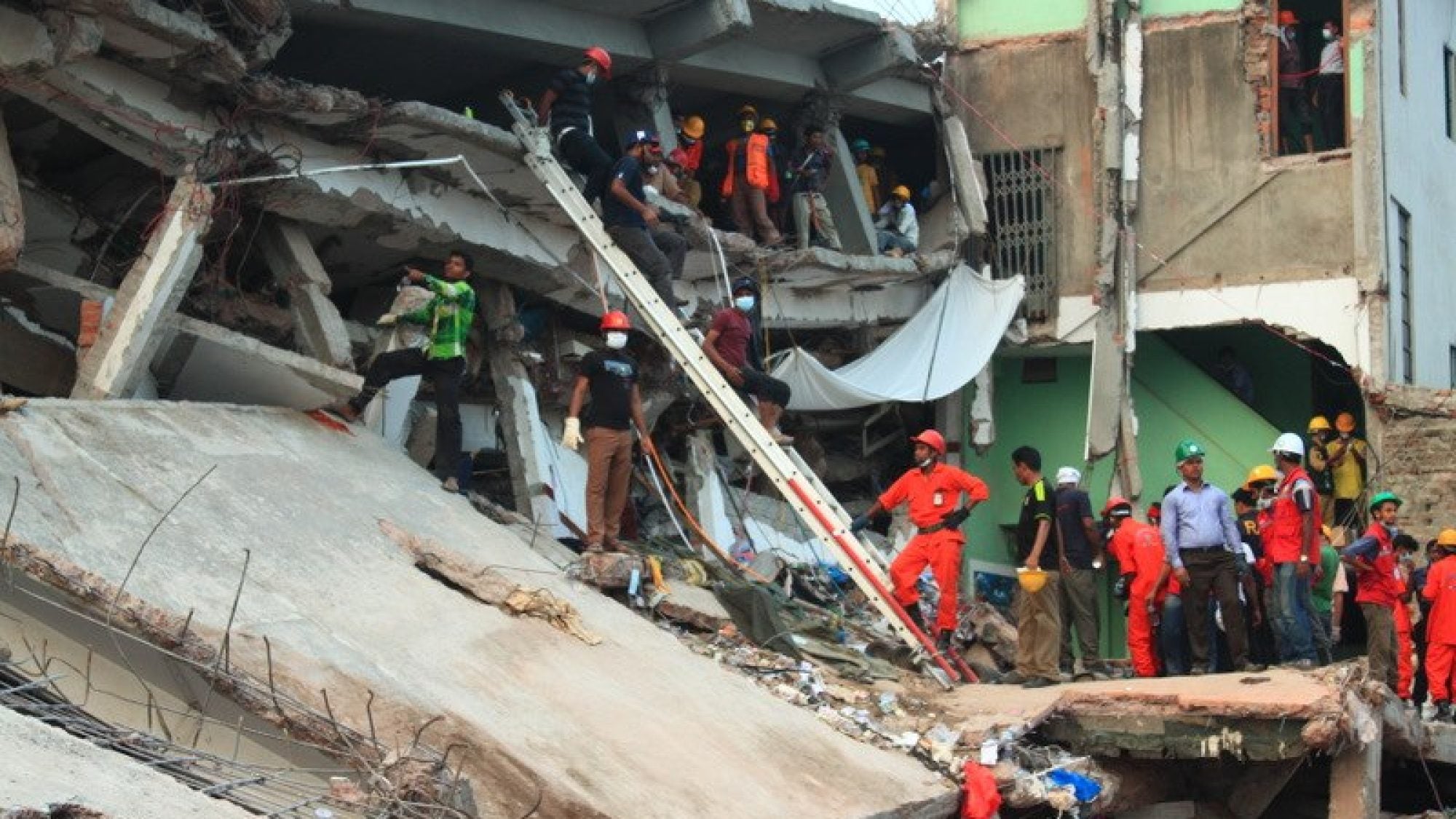
Title: Bangladesh’s Lessons for Enlightened Corporate Interest
The Rana Plaza tragedy in which 1,127 people were killed and over 2,500 injured has finally led to international action for labor reforms that will improve worker welfare. While the new EU-ILO-Bangladeshi Sustainability Compact for Continuous Improvements in Labour Rights and Factory Safety framework is a positive first step, international corporations continue to face the dilemma of whether responsibilities to their current and future employees outweigh profits and benefit to shareholders. Questions have also been raised by Wal-Mart, Gap, and Target refusing to sign the most recent, binding agreement on work conditions in Bangladesh.
In the wake of the factory collapse, customers, the public, shareholders, and the media have all made clear their collective disgust at deplorable working conditions in the country—it is estimated that these conditions have led to dozens of fires and other disasters over the past five years. With contracts in Bangladesh worth an estimated $20 billion per year, a whole host of corporations including Primark, Benetton, H&M, and Sears have had to question their continued participation in the Bangladeshi market.
In the days following the collapse, the Walt Disney Company announced its long-standing plan to pull out of the country and several other “high-risk” states, while others, including UK-based Primark, decided to offer victims compensation. In the coming months, companies will have to address how to respond to the latest in a long line of disasters to plague the local textile industry.
But they should not flee the countries involved, because they will find themselves in similar trouble elsewhere. International corporations need to help improve the situations where they now operate rather than either ignoring the problem until disaster strikes or shifting their operations to other markets with, at best, shaky governance frameworks, such as Myanmar.
While businesses do not relish regulation, they need strategies to ensure employees enjoy basic safety and security, can freely associate and bargain, can engage in open debate about human rights, and are free from human trafficking. Other than cases in which they might prop up regimes threatening their citizens and neighbors, companies ought to stay in vulnerable developing countries and contribute to their progress instead of abandoning them at the first sign of trouble.
The tragedy in Bangladesh highlights three imperatives for international businesses. First, corporations have an obvious economic interest in ensuring workers’ security and occupational safety. Offering factory upgrades, routinely inspecting subsidiary factories, and establishing stringent minimum guidelines for compliance would help provide basic security while also improving modes of production. These low-cost policies now built into the recently proposed agreements protect companies from the far larger cost of losing business from the public outcry over negligent behavior or from having to replace factories that are destroyed by fire or collapse.
Second, multinationals with contracts overseas have an even stronger responsibility to ensure that the human rights of the laborers who work for their customers are respected. Factories operated by their subsidiaries are often a venue for freedom of expression and assembly that contribute to pluralism and robust civic capacity—which stimulate the very productivity that leads to innovation and new products brought to market.
Finally, the more solemn responsibility is to ensure that human trafficking, including forced labor or flagrant child exploitation, does not occur. Even if it seeks cheap labor, no company wants human trafficking, or coercive adult or child labor. They are unproductive and devastating to their reputation. In particular, while there is a need to address how families can survive without the income that children too often provide, the place for children in the 21st century is not a grossly exploitative factory floor, but the classroom.
Looking forward, companies need to understand that the long-term solution to these problems in a country is not for companies to pull out—with the exception of cases of acute repression or discrimination such as South African apartheid or threats to world peace like North Korean and Iranian nuclear ambitions. Nor will pulling out rehabilitate companies’ brands.
The countries to which companies flee, such as Thailand—while hardly a perfect paragon of successful implementation of labor rights and law—offer examples of benefits for businesses seeking stronger regulations and enduring labor standards. In Thailand, businesses have played a key role in supporting better working conditions for employees of their subsidiaries by actively monitoring their supply chains while continuing to enjoy the benefits of low-cost production. They illustrate how there cannot be a continued reliance upon local governments (who have an interest in keeping wages low) or nongovernmental organizations (with limited resources) to ensure compliance of decent working conditions. Businesses are coming to terms with their interest in addressing exploitation and poor working conditions and are reaping the benefit of productivity gains.
In the past three months, Bangladesh has become a troubled venue for international businesses. Ironically, however, the best answers to the problem have too often been treated as kryptonite by companies that fear for their bottom lines or share prices rather than employees’ safety, rights, and freedom from abuse.
Image Credit: Sharat Chowdhury, CC BY 2.5 <https://creativecommons.org/licenses/by/2.5>, via Wikimedia Commons
This is an archived article. While every effort is made to conserve hyperlinks and information, GJIA’s archived content sources online content between 2011 – 2019 which may no longer be accessible or correct.
More News

We in the United States have long held one narrative of the Middle East—one of political instability, sectarian unrest, and oligarchs protecting great wealth in the hands of way too…

When the Georgetown Journal of International Affairs launched this online edition, I suggested that it address “human rights and human dignity.” Why dignity? As Anthony Clark Arend and I explore…

Georgetown professor Matthew Kroenig sat down with the Georgetown Journal of International Affairs to discuss his attendance at a recent meeting with Iranian President Hassan Rouhani in New York.